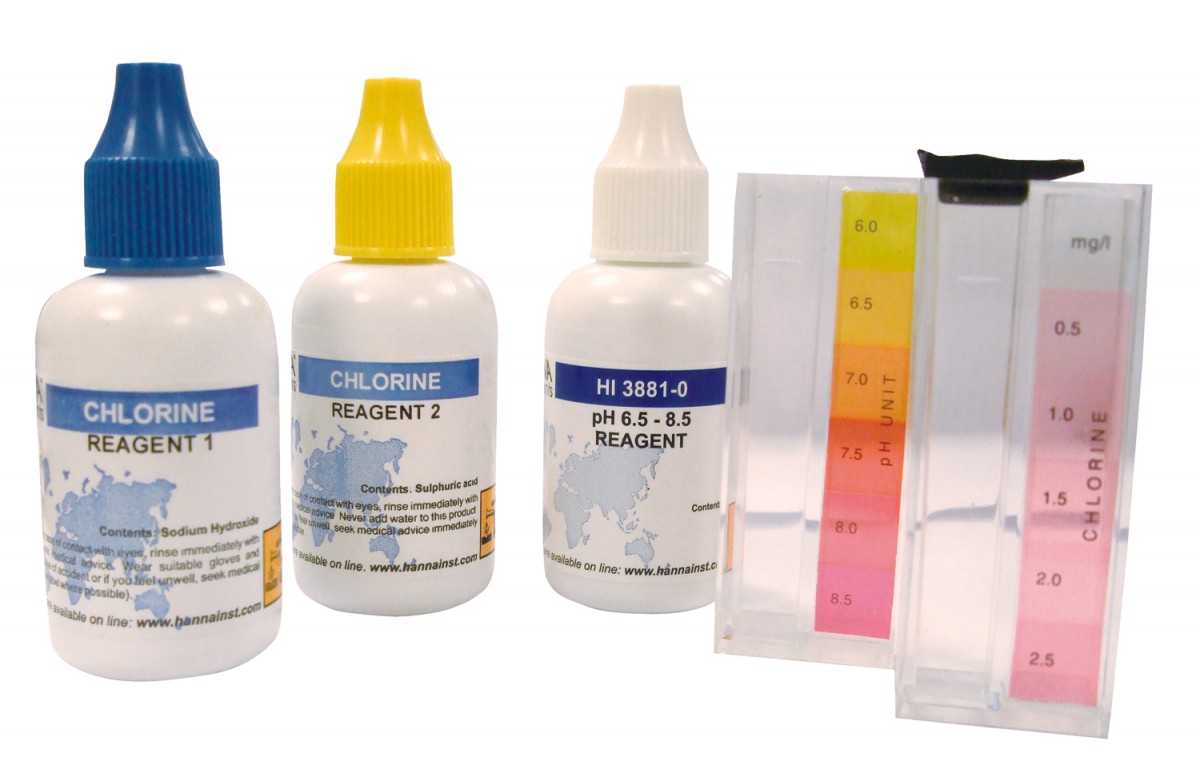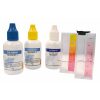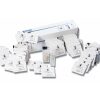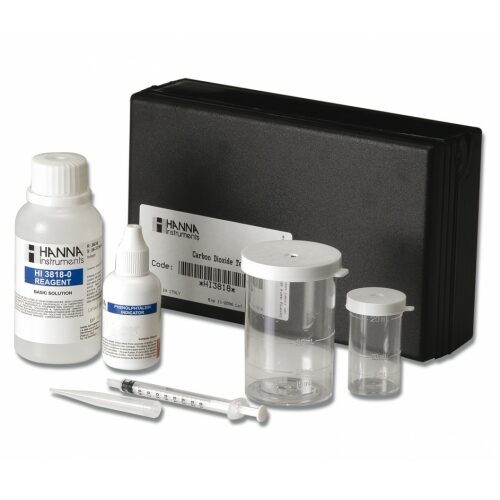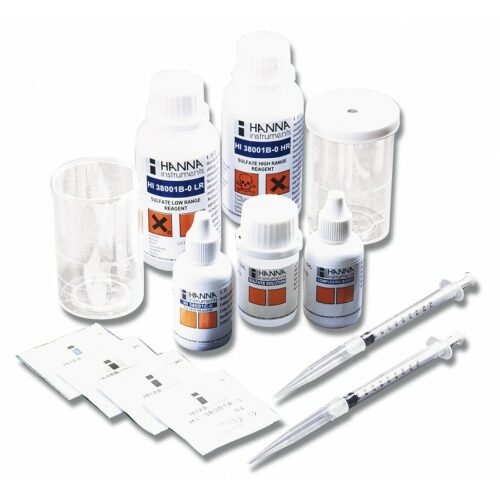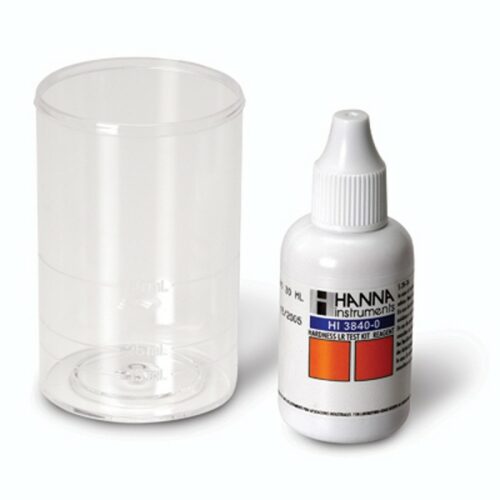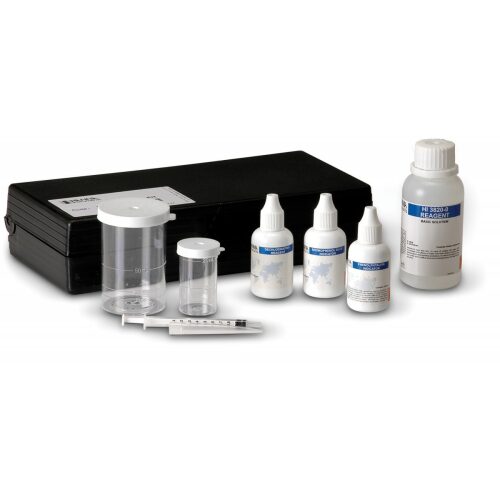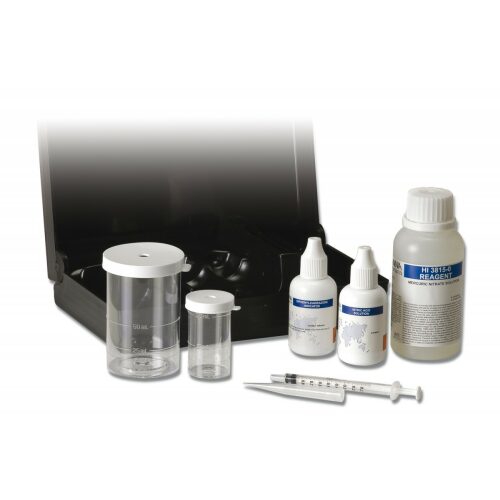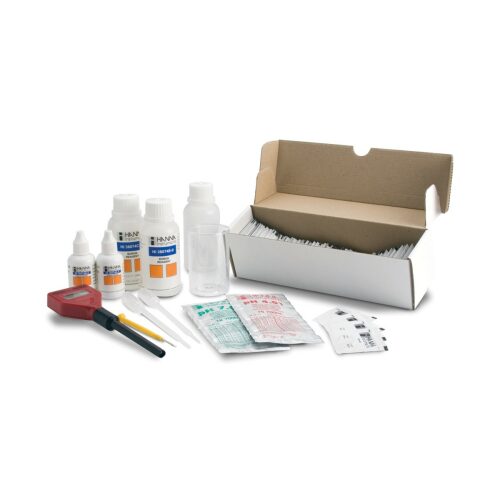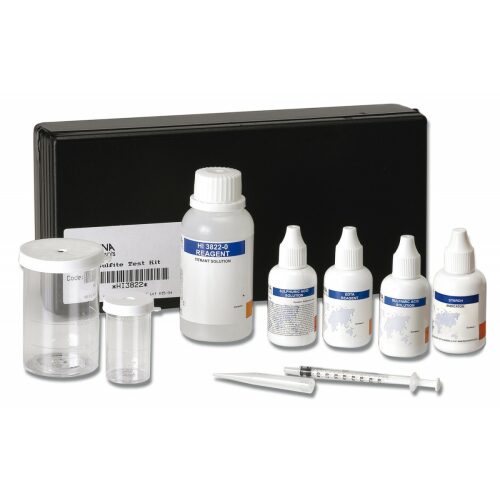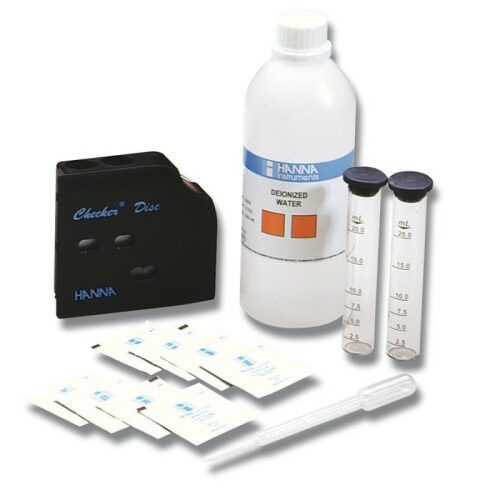No products in the cart.
HI3887 CTK pH & Free Chlorine
฿2,728.50
Chemical test kit for the determination of pH, free chlorine in Cl2: 0.5 mg / l / pH 6.0 to 8.5.
50/100 tests
5 in stock
SKU: HI3887
Categories: All Product, Checker Disc, Colorimetric, Titration, Chemical test kits
Free chlorine reacts with ammonium ions and organic compounds to form chlorine compounds resulting in diminished disinfecting capabilities compared with free chlorine. These chlorine compounds together with chloramines form combined chlorine. Combined chlorine and excess free chlorine together result in total chlorine. While free chlorine has a much higher disinfectant potential, combined chlorine has a much higher stability and has a lesser volatility. There should be sufficient levels of unreacted free chlorine for adequate disinfection, but not so much as to become harmful.
Order Information:
HI 3887 test kit comes with color comparison cubes (2), 20 mL reagent 1, 15 mL reagent 2, 25 mL HI 3881-0 pH 6.0-8.5 reagent
Specification :
| Method | Colorimetric | |
| Range | Cl²: 0.0-2.5 mg/L pH: 6.0-8.5 pH |
|
| Smallest Increment | Cl²: 0.5 mg/L pH: 0.5 pH |
|
| Chemical Method | DPD pH indicator |
|
| Number of Tests | Cl²: approx. 50 pH: 100 |
|
| Weight | 280 g |
Related products
All Product
฿1,605.00
Chemical test kit for the determination of carbon dioxide in the range 0 to 10 mg / l / 0 to 50 mg / l / 0 to 100 mg / l (ppm).
All Product
฿5,082.50
Test kit for the chemical determination of sulfate in the range 100 to 1000 mg / l (ppm) and 1000 to 10000mg / l (ppm). 200 tests
All Product
฿642.00
Chemischer Testkit zur Bestimmung der Härte im Bereich 40 bis 500 mg/l (ppm). Packungsgröse: 50 Tests
All Product
฿2,782.00
Chemical test kit for the determination of acidity in the range 0 to 100 mg / l (ppm). No. of Tests: 110 tests
All Product
฿2,621.50
Chemical test kit for the determination of chloride in the range 0 to 100 mg / l / 0 to 1000 mg / l (ppm).
All Product
฿5,136.00
A test kit for the determination of chemical sulphite in the range 0 to 20 mg / l / 0 to 200 mg / l (ppm). 110 tests
All Product
฿7,757.50
Chemical test kit for the determination of free and total chlorine in the range 0.0-0.70/0.0-3.5/0.0-10.0 mg / l (ppm). 200 tests
